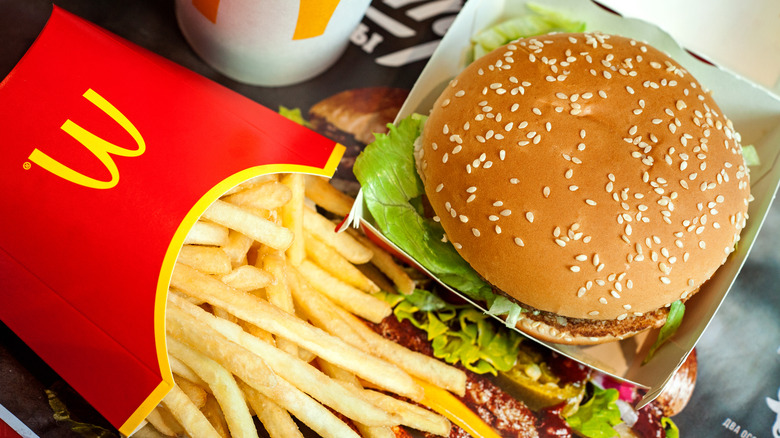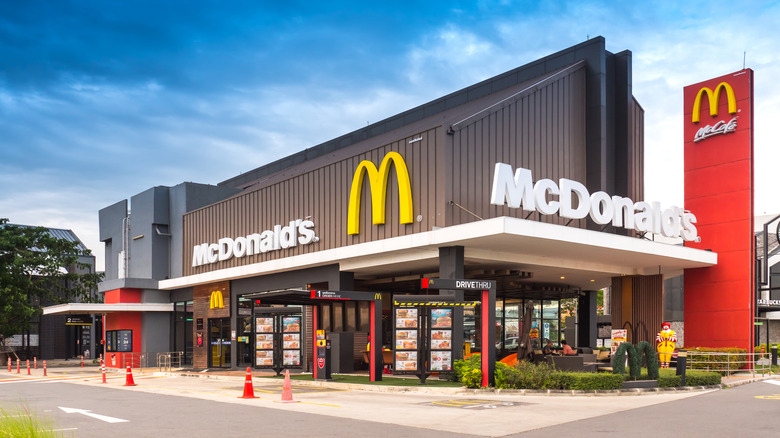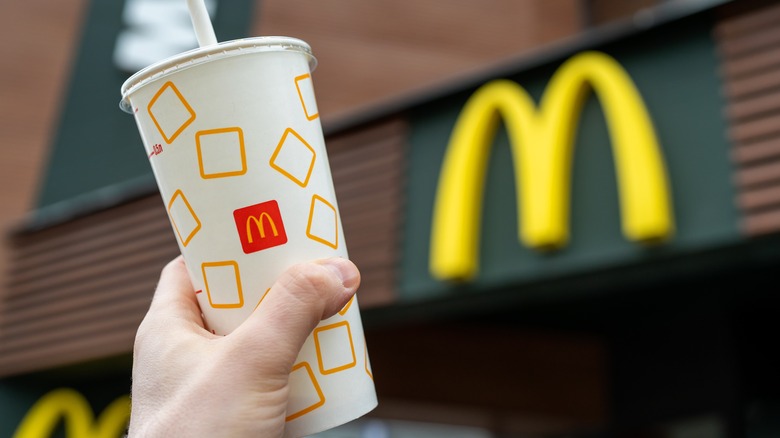The Reason McDonald's Burgers Don't Rot Is Actually Really Simple
It's just a sad fact of life: organic substances decay over time. No matter what you do or how hard you try, you can't stop the natural aging process. While this thought is sure to induce plenty of existential angst when you apply it to yourself, it also applies to the foods we eat. When foods are exposed to the open air, they run the risk of bacterial growth. Bacterial growth renders food dangerous to eat, so it must be discarded. While reliable packaging and manufacturing processes (such as canning) are capable of deterring rot for an extended period, there's not much you can do once packages are opened and the contents are exposed to the outside world.
That's why it's so surprising when foods absolutely refuse to break down as nature intended. Take McDonald's hamburgers, for instance, which routinely create a buzz on the internet when subjected to casual science experiments. Today once shared the story of a McDonald's hamburger, sold in 2009, that still retained its good looks some six years later. While this phenomenon caused lots of people to claim that McDonald's longevity must be owed to all the chemicals used to make the food, the truth is that the restaurant's cooking process is actually the reason for its extended stability.
A dry burger is best for longevity
If you've ever wondered why McDonald's hamburger patties are designed to be so thin, the answer is that these patties simply last longer. Food with high moisture content is far more susceptible to rot, as bacteria needs water to thrive. Moisture sustains bacteria, which can then go about setting the decay process in motion. With McDonald's patties, the chain's burgers have more surface area than volume. This helps dry out a great deal of moisture as the meat is being cooked.
Additionally, the restaurant insists that staff make burgers well done for an even greater reduction in the moisture content. The high temperatures used to cook burgers also help eliminate any bacteria already within the meat, which boosts stability even further. Additionally, it's possible to make your own long-lasting burgers at home using the same cooking techniques, which shows that McDonald's doesn't have any chemical-based tricks up its sleeves. However, that doesn't mean the chain is not without its surprises.
Fascinating facts about McDonald's
The ingredients used to create McDonald's special sauce used to be a closely guarded secret. After all, the last thing the chain wanted was for competitors to get the recipe, or to have its customers make their own special sauce at home. However, the restaurant eventually released its ingredient listing and revealed just what makes the special sauce so special. The sauce mainly consists of sweet relish, distilled vinegar, soybean oil, and water. However, additional ingredients like garlic powder and mustard are added to imbue it with its iconic flavor profile.
Equally intriguing is the claim the Coke products at McDonald's somehow taste different when compared to other establishments. While this seems like the type of fanatical claim that only a diehard McDonald's fan would make, there is some basis to this statement. In most cases, the Coke company transports the syrup used to make its iconic soft drink in plastic bags. However, the syrup is provided to McDonald's in steel tanks. While steel tanks are used to keep the soda fresh while being transported, it's also possible that the storage alteration is having a positive effect on flavor as well.


